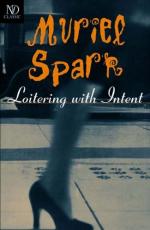
|
| Name: _________________________ | Period: ___________________ |
This test consists of 15 multiple choice questions and 5 short answer questions.
Multiple Choice Questions
1. What do Maisie and Fleur discuss during that first visit?
(a) Fleur's novel.
(b) Sir Quentin.
(c) Satan.
(d) Maisie's manuscript.
2. What is the single sentence, overheard by Fleur in restaurant, that had inspired her novel?
(a) "Who was he, this man we all wanted to meet?"
(b) "He came upon the group of them, silent and morose."
(c) "Mr. Chase cannot join us this evening. He is otherwise engaged."
(d) "They were all gathered in the living room, waiting for him."
3. How does Fleur feel after this visit with Gray?
(a) Glad that Leslie has returned, at least temporarily, to Dottie.
(b) Worried that Gray might do himself harm.
(c) Her rage has subsided and she believes him much more sane than any members of the Association.
(d) Jealous that he has been so involved with Leslie.
4. What kind of secret meetings does Warrender Chase hold in the novel?
(a) A secret society of writers.
(b) Liasons with his lover, Charlotte.
(c) An anonymous charitable organization.
(d) Prayer meetings.
5. After the party, Fleur goes out with Wally McConnachie. Where do they go?
(a) They go to dinner, then back to Fleur's room.
(b) They visit a poetry reading.
(c) They stroll along the Thames and chat.
(d) They spend the whole night dancing.
6. What does Lady Edwina say when her new nurse collects her from the Association meeting in Chapter 3?
(a) "Well my dears, he's got you where he wants you, hasn't he?"
(b) "I will NOT be treated like a pathetic old woman!"
(c) "Quentin, my son! Don't let her take me!"
(d) "She is a nurse, is she? Why do I need a nurse?"
7. Fleur realizes in the first chapter that one of her senses has a more keen memory than the others. Which one is it?
(a) Her sight.
(b) Her hearing.
(c) Her sense of taste.
(d) Her sense of smell.
8. How does Maisie Young react to Fleur's room when she first visits?
(a) She feels sorry for Fleur, wishing aloud she had a larger home.
(b) She tries to convince Fleur to move into her estate.
(c) She loves the tiny room, viewing it as one might view the home of a Hobbit.
(d) She is amazed at its compact size, revealing an ignorance of the realities of being poor.
9. How does Dottie initially react to the members of the Autobiographical Association?
(a) She immediately begins making friends.
(b) She tries to turn them against Fleur in retaliation for her affair with Leslie.
(c) She is put off by their enormous egos.
(d) She feels alienated, as she had not yet written anything.
10. What does Fleur decide to do with the manuscripts when she begins typing them out?
(a) As she tried to make sense of them, she made changes to make them worse.
(b) She edits them by hand before beginning to type them out.
(c) She made slight improvements in the stories, but the authors did not want any modifications.
(d) She interviews each author in order to get a better feel for their stories.
11. How had her main character, Warrender Chase, distinguished himself before the events of the novel begin?
(a) He started a charity to care for war orphans.
(b) He had an exemplary war record.
(c) He had uncovered a plot to embezzle millions from the Bank of England.
(d) He had rescued a woman from a burning building.
12. What about Lady Edwina does Fleur particularly like in the beginning?
(a) Her sense of humor.
(b) Her grand entrances and extraordinary statements.
(c) Her opinions about the various memoirs.
(d) Her thoughtful, kind demeanor.
13. How is the plot of Warrender Chase, the novel, influenced by Fleur's experience at the Autobiographical Association?
(a) Sir Quentin becomes her muse for the title character.
(b) It is not; it was already developed before she started working there.
(c) All of the Association members become the various victims of Chase in the novel.
(d) The flat where the meetings are held became the setting for the book.
14. How does Fleur suggest Dottie cope with her suffering over Leslie's infidelities?
(a) She suggests Dottie join the Association and write her own autobiography.
(b) She tells Dottie to leave Leslie altogether.
(c) She helps Dottie plan revenge.
(d) She encourages Dottie to find an outside lover of her own.
15. What are Warrender Chase's intentions in Fleur's novel?
(a) He wants a new lover without giving up his current mistress.
(b) He is trying to start a religious cult.
(c) She never reveals them, only the effects of his actions.
(d) He wants to be rid of his lovers altogether.
Short Answer Questions
1. How does Fleur get rid of Maisie when she can tolerate her vapid conversation no longer?
2. What does Fleur say to Bucks Gilbert before she leaves?
3. Which of the characters in Fleur's novel most resembles Lady Edwina?
4. Where does Leslie live after he moves out of his home with Dottie?
5. How does Fleur react to Dottie's first written piece?
|
This section contains 932 words (approx. 4 pages at 300 words per page) |

|




